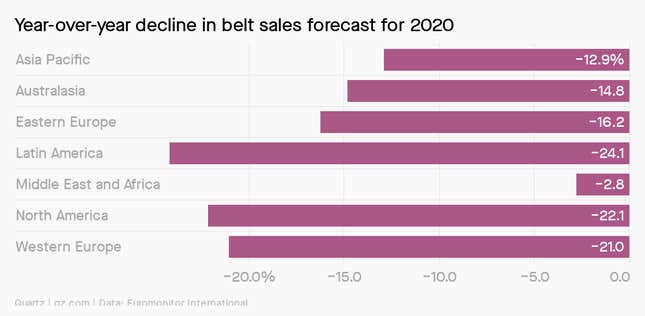Good morning, Quartz readers!
We’re taking a break on Thursday and Friday this week, but will be back in your inbox on Saturday. Stay safe out there.
Here’s what you need to know
Japan and China will restart business trips. During Chinese foreign minister Wang Yi’s visit to Tokyo, the two countries agreed to allow business travelers to forgo 14-day quarantines by the end of the month.
Another 43 Chinese apps got the boot in India. More than 200 have now been banned as a result of ongoing tensions over the China-India border dispute. The latest batch includes Alibaba’s AliExpress and delivery service Lalamove.
Xiaomi is now the world’s third largest smartphone maker. The Chinese company said it sold 45% more phones in the latest quarter than during the same period a year ago. Its recent success is due in part to rival Huawei’s struggles—but that stroke of fortune may not last.
Google finalized its investment in Jio Platforms. A stock exchange filing showed the US tech giant had delivered on its promised Rs 33,737 crore ($4.5 billion) payment for a 7.73% stake in Reliance Industries’ tech subsidiary.
Russia claimed its Covid-19 vaccine has more than 95% efficacy. Preliminary data from the Sputnik vaccine appear to show it has comparable results to those from Pfizer/BioNTech and Moderna, but many in the international community are skeptical.
India is on track to exceed its emissions targets. A new Bank of America Securities report said the country will likely beat its Paris Agreement goals—despite being one of the world’s most polluted nations—thanks to initiatives to reduce diesel usage, boost renewables, and improve emissions standards, among others.
Who’s covered?
At this point in the Covid-19 pandemic, three vaccine research and development groups—BioNTech and Pfizer; Moderna; and AstraZeneca and the University of Oxford—have released promising preliminary data about their Covid-19 vaccine candidates. This is good news for the end of the pandemic—but particularly for those countries that have already pre-ordered millions of doses of these three vaccine candidates.
Here are the countries (or blocs of countries) that have ordered enough to cover each individual, in descending order of rate of coverage:
🇨🇦 Canada
🇯🇵 Japan
🇬🇧 UK
🇺🇸 US
🇦🇺 Australia
🇪🇺 EU
🇨🇱 Chile
But, as with everything related to Covid-19, it seems, there’s a lot more to it than that.
Charting waistlines
Well, not the size of waistlines, but the need to cinch pants around them. Belt sales have taken a hit from the pandemic. In countries such as the US and UK, consumers who are buying pants are frequently opting for stretchy, comfortable styles rather than structured and rigid ones. You don’t need a belt when your pants have an elastic waistband—if you’re wearing pants at all. Marc Bain expands on the topic.

The great pandemic bake off
In the last nine months, have you done any of the following:
🍜 Tried out an ambitious recipe
🥕 Purchased produce from a local farm or grocer
🎂 Found comfort in old episodes of cooking shows
👵 Called a family member to get a treasured recipe
🧘 Tried to find more sustainable ingredients
If any of the changes in food habits are likely to outlast the pandemic, it’s the slow shift toward mindfulness.
Not that everybody’s suddenly become a beacon of healthy, sustainable eating. But global lockdowns early in the pandemic and the return of stay-at-home orders in some regions have forced many to spend more time in the kitchen than they had in a long while. For those with the time and the income, that’s encouraged a reckoning with the quality of the ingredients that make up their meals. Read more about how the coronavirus pandemic has changed our relationship with food in our latest field guide to how we eat now.
Remember your work family
Don’t leave employees home alone. Metaphorically, that is. Here’s how to check in on mental health around the holidays, which are looking pretty bleak.
Add new people the right way. If a team is struggling, it could likely be an ailing hiring process.
Surprising discoveries
Priceless Charles Darwin notebooks have been missing for 20 years. Cambridge University librarians now think they were stolen.
A customer left a $3,000 tip for a single beer. It was a token of appreciation for the Ohio restaurant’s voluntary closure due to the pandemic.
Americans want tiny turkeys for Thanksgiving this year. It’s awkward, because the industry keeps growing them bigger.
A $1 billion drug bust that wasn’t. Thai officials’ claims of a massive ketamine haul aren’t holding up to chemical testing.
A PPE maker has been hobbled by sick employees. The world’s largest latex glove manufacturer is closing more than half its factories after nearly 2,500 workers tested positive for Covid-19.
Our best wishes for a productive day. Please send any news, comments, Darwin’s sketches, and impossibly huge tips to hi@qz.com. Get the most out of Quartz by downloading our iOS app and becoming a member. Today’s Daily Brief was brought to you by Katherine Ellen Foley, Marc Bain, Liz Webber, and Susan Howson.